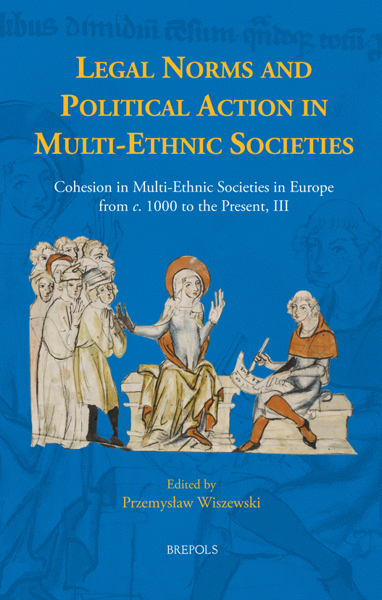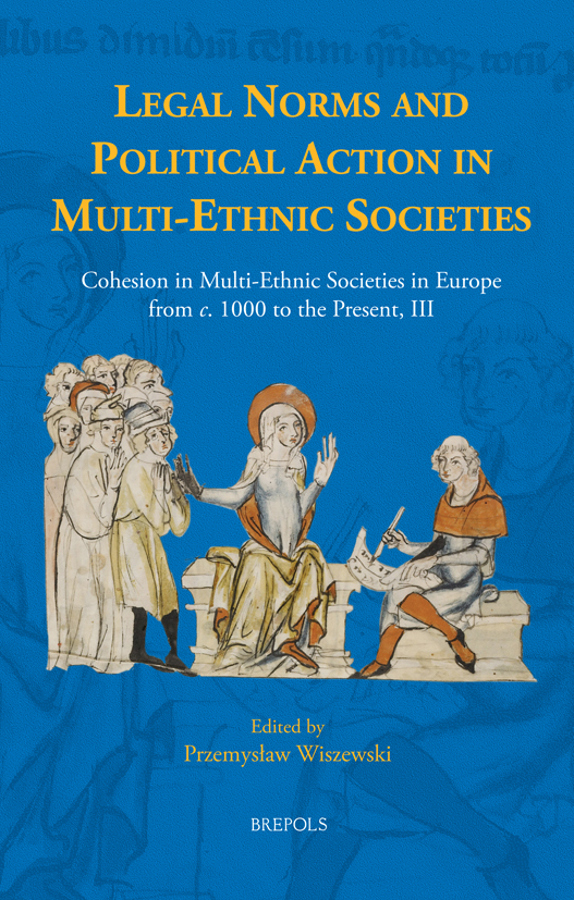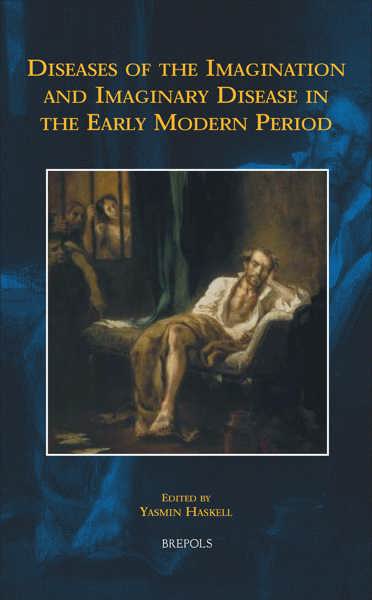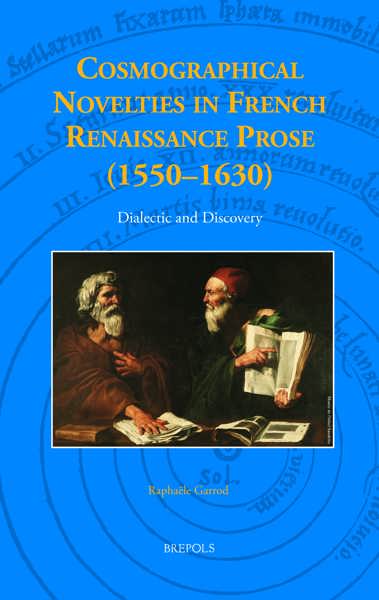
Legal Norms and Political Action in Multi-Ethnic Societies
Cohesion in Multi-Ethnic Societies in Europe from c. 1000 to the Present, III
Przemyslaw Wiszewski (ed)
- Pages: 336 p.
- Size:156 x 234 mm
- Illustrations:3 b/w, 13 maps b/w
- Language(s):English
- Publication Year:2023
- € 100,00 EXCL. VAT RETAIL PRICE
- ISBN: 978-2-503-60230-1
- Hardback
- Available
- ISBN: 978-2-503-60231-8
- E-book
- Available
Explores the causes of political cooperation between ethnic groups and related legal norms, despite the risk of conflict.
“(…) Brepols is to be praised for bringing out useful and interesting volumes, and the Polish Academy of Sciences, Wiszewski, and the contributors should be thanked for making the volume open access so that one can dive in and sample the pieces of particular interest to learn more about the societies under discussion here.”(Christian Raffensperger, in The Medieval Review, 24.06.02)
Przemysław Wiszewski is a Professor of Medieval and Early Modern History at the Institute of History, University of Wrocław, with a special interest in medieval and early modern history of social relations and values structures within medieval societies and regional history.
The three-volume project Cohesion in Multi-Ethnic Societies in Europe from c.1000 to the Present explores and seeks to find solutions to a crucial problem facing contemporary Europe: in what circumstances can different ethnic groups co-operate for the common good? They apparently did so in the past, combining to form political societies, medieval and early modern duchies, kingdoms, and empires. But did they maintain their ethnic traditions in this process? Did they pass on elements of their cultural memory when they were not in a dominant position in a given polity?
The first volume in the project explored ethnic cohesion as evidenced by narratives about the past, while volume two analysed communal events and activities. This third volume focuses on how relations between ethnic groups were influenced by political activities and related legal norms. Both cooperation and conflict between ethnic communities find their expression in political activities, although they usually have a significant cultural and economic background as well. This book examines the causes of political cooperation between ethnic groups, despite the risk of conflict, and the methods of stabilizing this cooperation through the enactment of law.
Introduction: Legal Norms and Political actions in Multi-ethnic Societies —PRZEMYSŁAW WISZEWSKI
Ethnic Differences and Political Activities within Silesian Societies (Thirteenth-Fifteenth Centuries)—PRZEMYSŁAW WISZEWSKI
Royal and Ducal Legislation for the Ethnic Communities in Selected Cities of the Polish Territories (Twelfth - First Half of the Sixteenth Century) —GRZEGORZ MYŚLIWSKI
The Integration and Separation of the Communities of Ruthenia after Its Incorporation into the Kingdom of Poland —ANDRZEJ PLESZCZYŃSKI
The (Slow) Building of Mechanisms of Cooperation Between the Transylvanian Estates (From the Second Half of the Fourteenth to Mid-fifteenth Century)—COSMIN POPA-GORJANU
The So-Called Cuman Law in the Thirteenth century in Hungary —DANIEL BAGI
Economic Competition between Christian Burghers and Jews: The Modelling of Jewish Economic Activity Through the Restrictions on Jewish Merchants and Craftspeople in the Towns of the Grand Duchy of Lithuania—JURGITA VERBICKIENĖ
An Attempt to Rethink the Karaites’ Traditional Views on their (Im)migration to the Grand Duchy of Lithuania in the Middle Ages —DOVILĖ TROSKOVAITĖ
The Magdeburg Law and Its Effect on the Development of Jews’ legal Status in the Towns of Grand Duchy of Lithuania: The Experience of the Fourteenth–Sixteenth Centuries —AIVARAS POŠKA
Aspects of Relations between Russians and Other Ethnic/ Religious Groups in the Mirror of the Muscovite Law Code of 1649—ENDRE SASHALMI
Royal Law and Ethnic Minorities in Portugal (Twelfth - Sixteenth Centuries): A Wide Strategy for Shaping Social Diversity —PAULA PINTO-COSTA, JOANA LENCART
Culture and Faith as the Main Bonding Factors for a Multi-ethnic Society? The Manipulation of History in Early Modern Sardinia (Sixteenth-Seventeenth Centuries)—LUCIANO GALLINARI
Discrimination and Ethnic-Religious Segregation in Legal Texts in Medieval Southern Catalonia —MARIA BONET
Social Cohesion and Jewish Otherness in Late Medieval Catalonia — FLOCEL SABBATE CURUL
The impact of U.S. Immigration Laws on the Lives of the Polish Ethnic Group in the United States —JOANNA WOJDON
Co-operation or Conflict within Medieval and Early Modern Multi-ethnic Political Communities (Eastern and Southern Europe)? False Dilemma. Concluding remarks —PRZEMYSŁAW WISZEWSKI
Index




